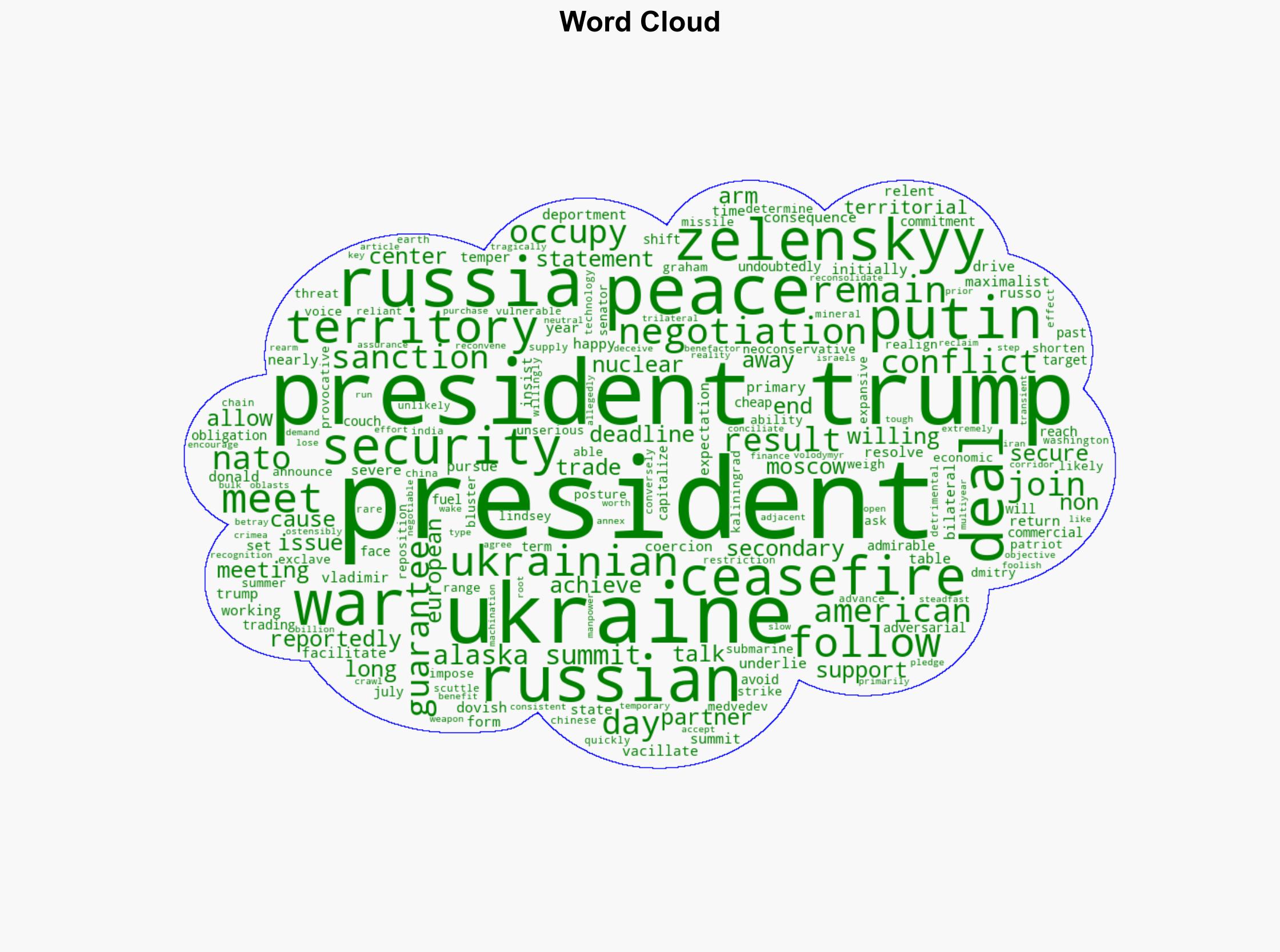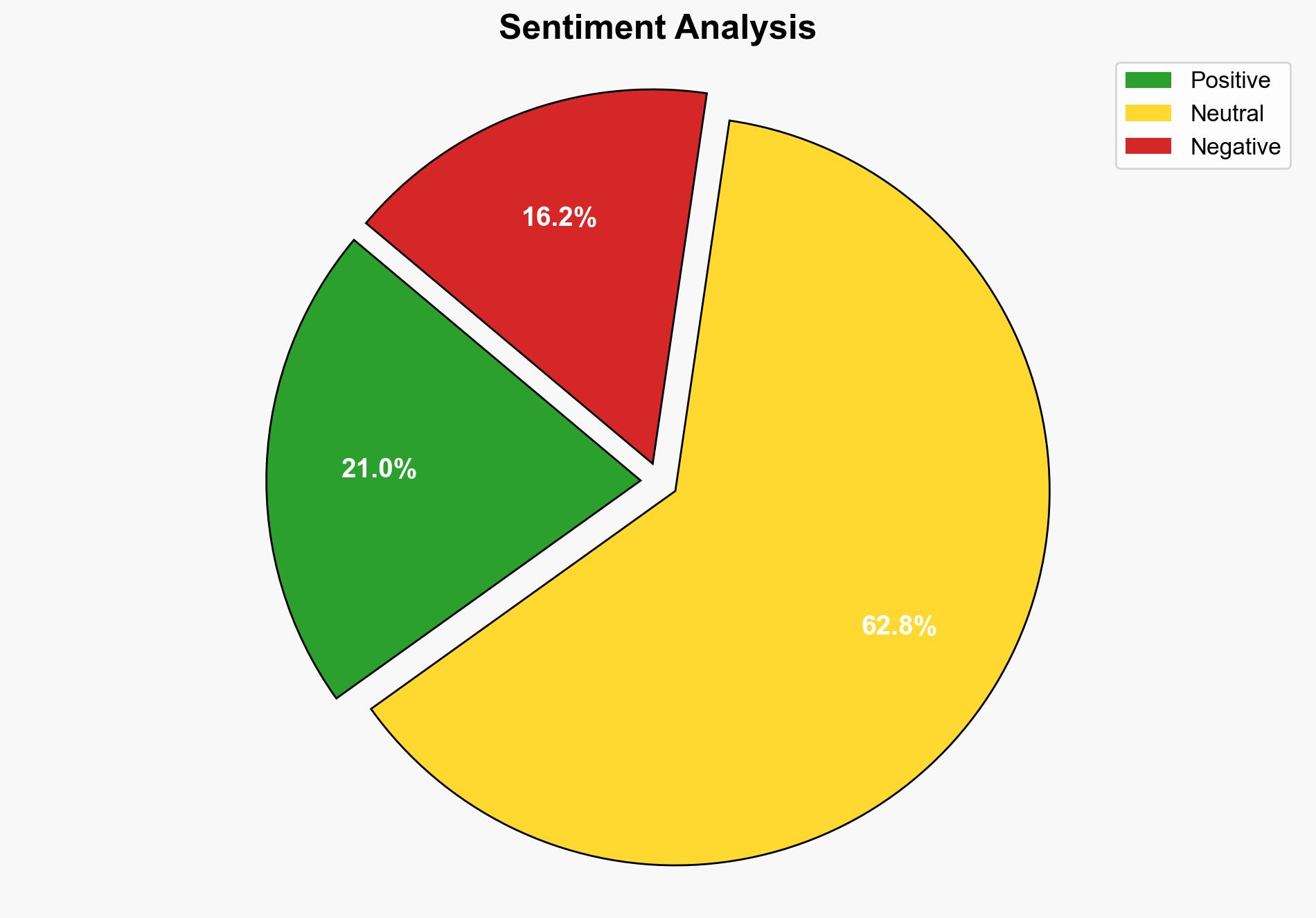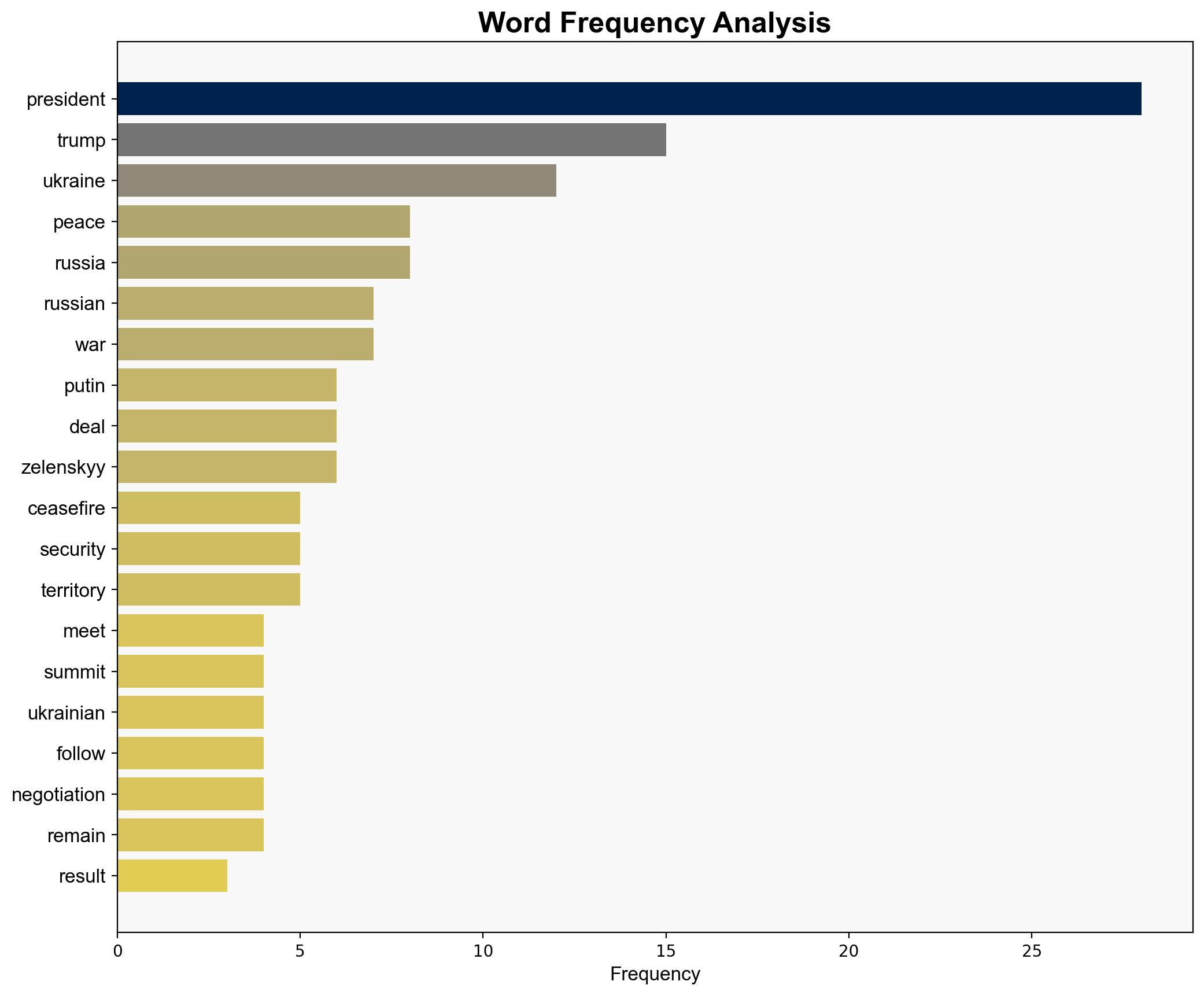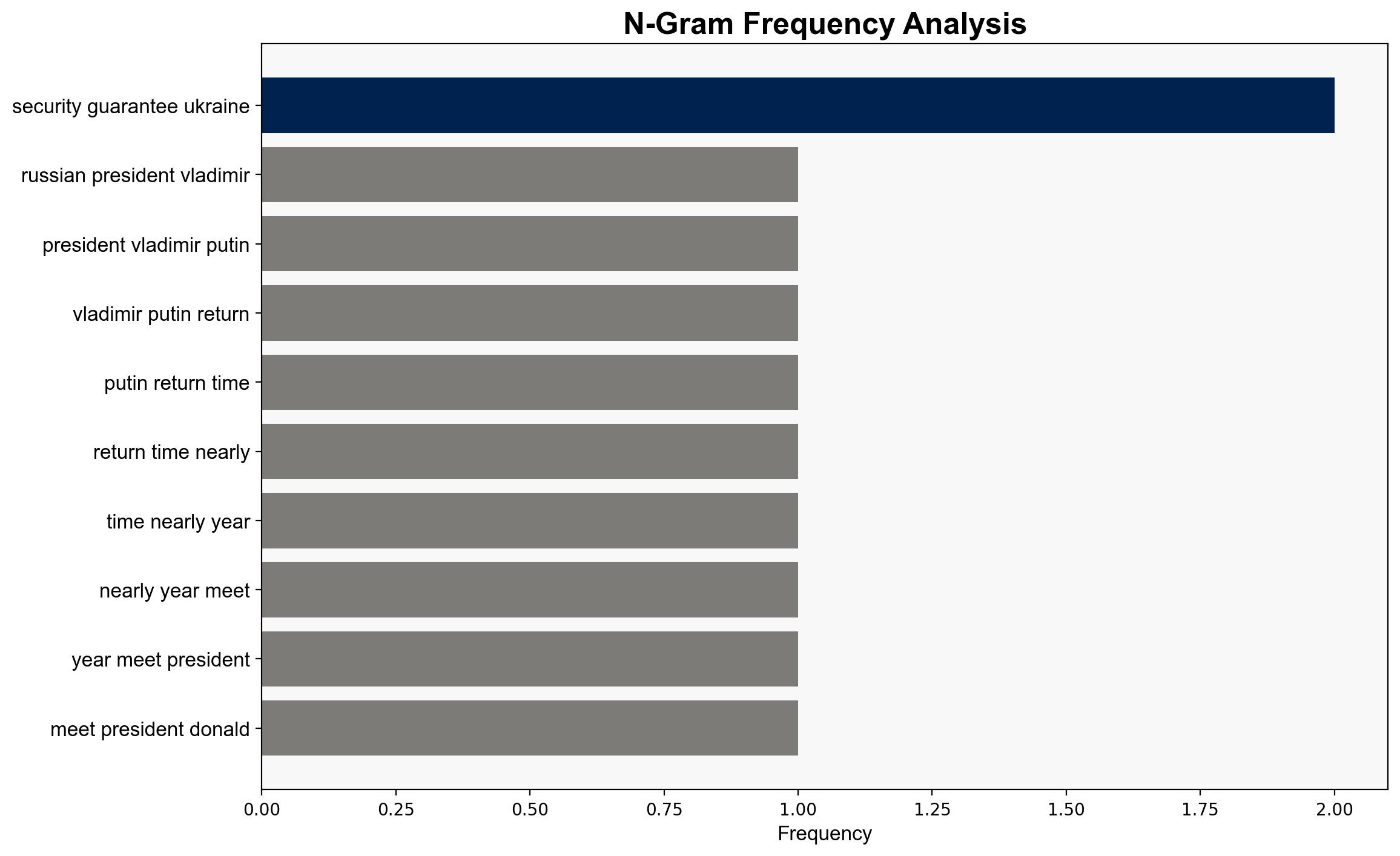The American Interest Is Not in Committing to Ukraine – Antiwar.com
Published on: 2025-08-25
Intelligence Report: The American Interest Is Not in Committing to Ukraine – Antiwar.com
1. BLUF (Bottom Line Up Front)
The analysis suggests that the U.S. interest in Ukraine is limited and primarily driven by strategic posturing rather than a commitment to long-term involvement. The most supported hypothesis is that the U.S. aims to use Ukraine as a geopolitical lever against Russia without deep entanglement. Confidence level: Moderate. Recommended action: The U.S. should maintain a balanced approach, supporting diplomatic resolutions while avoiding escalation that could lead to broader conflict.
2. Competing Hypotheses
1. **Hypothesis A**: The U.S. is using Ukraine as a strategic tool to pressure Russia, without intending to commit to a prolonged military engagement. This is supported by the vacillation in U.S. policy and the emphasis on economic sanctions rather than military intervention.
2. **Hypothesis B**: The U.S. is genuinely committed to supporting Ukraine’s sovereignty and is prepared to escalate its involvement if necessary. This is suggested by the provision of military aid and public statements supporting Ukraine’s territorial integrity.
Using ACH 2.0, Hypothesis A is better supported due to the inconsistency in U.S. actions and statements, suggesting a reluctance to engage militarily beyond strategic posturing.
3. Key Assumptions and Red Flags
– **Assumptions**: It is assumed that U.S. policy is primarily driven by strategic interests rather than ideological commitments to Ukraine’s sovereignty.
– **Red Flags**: The inconsistency in U.S. policy and the potential for misinterpretation of intentions by Russia and Ukraine. The reliance on economic sanctions assumes they will be effective in altering Russian behavior.
– **Blind Spots**: The potential for unintended escalation if U.S. actions are perceived as aggressive by Russia.
4. Implications and Strategic Risks
– **Economic**: Prolonged sanctions could strain U.S. relations with allies dependent on Russian energy.
– **Geopolitical**: Missteps could lead to increased tensions with Russia, potentially drawing in NATO allies.
– **Psychological**: Mixed signals from the U.S. could undermine Ukrainian morale and resolve.
– **Cyber**: Increased risk of cyber retaliation from Russia targeting U.S. infrastructure.
5. Recommendations and Outlook
- Maintain diplomatic channels with Russia to manage tensions and avoid escalation.
- Support Ukraine through non-military means, such as economic aid and diplomatic backing.
- Scenario Projections:
- Best: Diplomatic resolution leading to a stable ceasefire.
- Worst: Escalation into a broader conflict involving NATO.
- Most Likely: Continued low-level conflict with periodic diplomatic engagements.
6. Key Individuals and Entities
– Vladimir Putin
– Donald Trump
– Volodymyr Zelenskyy
– Dmitry Medvedev
– Lindsey Graham
7. Thematic Tags
national security threats, geopolitical strategy, U.S.-Russia relations, Ukraine conflict




